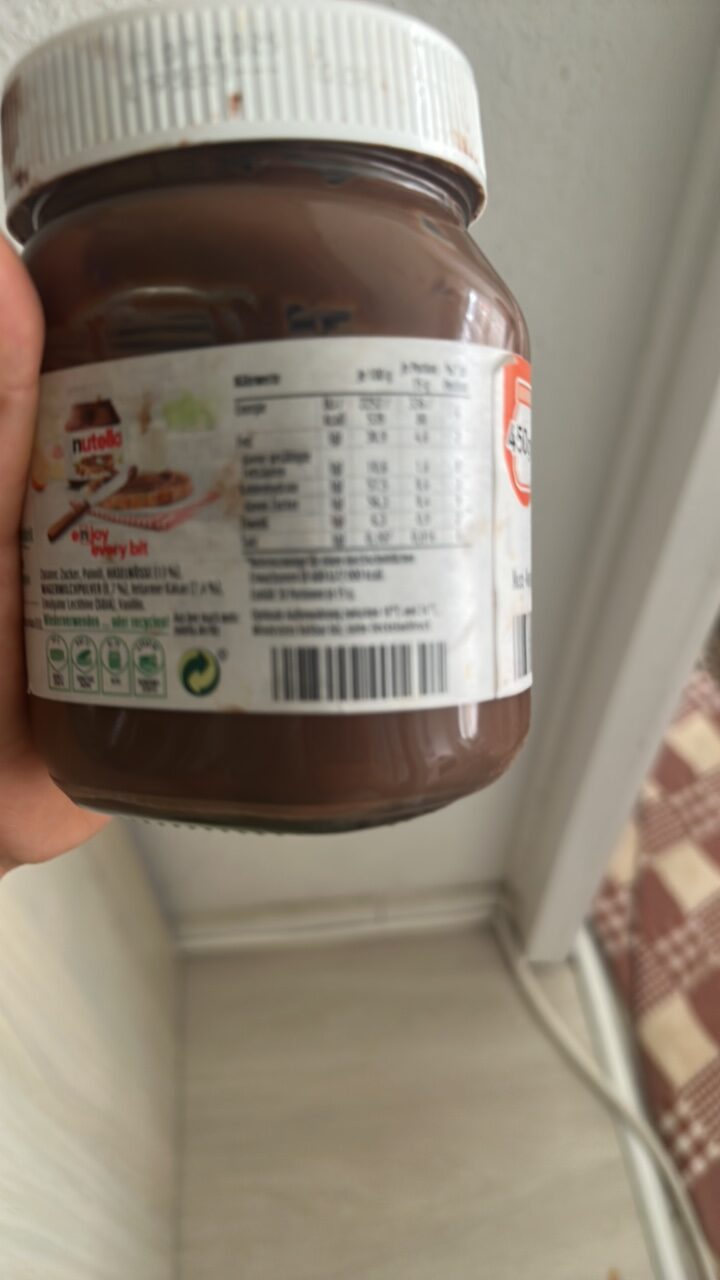
Barcode: 4008400401621
Nutella
HALAL
📝 Reason: Based on Islamic dietary laws, Nutella’s ingredients are generally Halal but the presence of ’emulsifier’ with unspecified origin is classified as Doubtful. Emulsifiers can be derived from plants or animals, and without clear Halal certification, doubt exists (Quran 5:3: avoid doubtful). This rules the overall status as Doubtful, following IFANCA and common Halal dietary guidelines.
🏷️ Category: Spread, Chocolate
📄 Certificates: Enjoy Every Bite, With Creamy Milk, With Hazelnuts, Vegetarisch
Ingredients:
Details
Exploring the Halal Status of Nutella
Nutella, renowned for its creamy texture and heavenly taste, is a beloved spread that many enjoy. However, for those following Islamic dietary laws, the question remains: Is Nutella Halal? In this post, we will thoroughly examine its ingredients and their respective halal statuses to provide you with a clear understanding of Nutella’s appropriateness for your diet.
Official Halal Status
According to sources, Nutella is classified as Halal, but there is a caveat. The presence of the ingredient ’emulsifier’ raises some doubts regarding its origin. The Quran advises avoiding doubtful matters, making it essential to analyze each component. We will break down the ingredients below to see what makes Nutella Halal or doubtful.
Analyzing Nutella’s Ingredients
Here are the ingredients found in Nutella, along with detailed insights:
- Sugar: Sugar is primarily plant-derived and is generally considered Halal. However, it’s important to note that some processing methods may involve bone char, which is less common in Europe. For further details, please confirm through sources like Halal HMC and IFANCA.
- Palm Oil: This ingredient is derived from plants and produced through physical extraction, making it Halal, as affirmed by Halal HMC and IFANCA.
- Hazelnuts: As a plant-based ingredient, hazelnuts are inherently Halal. Their status is confirmed by My Halal Kitchen and Is it Halal.
- Skimmed Milk Powder: Dairy products from cows are generally Halal, assuming there are no Haram additives present. With no indications of animal rennet or Haram enzymes in this case, skimmed milk is safe to consume, as stated by Is it Halal and Halal HMC.
- Fat Reduced Cocoa: Derived purely from cocoa beans, this ingredient does not contain any Haram substances, qualifying it as Halal. For details, check Halal HMC and Food Crumbles.
- Whey Powder: A by-product of cheese, whey powder is Halal unless specific concerns about animal-derived additives arise. The sources supporting its Halal status include Is it Halal and Halal HMC.
- Emulsifier: The classification of this ingredient is somewhat unclear. The label simply states ’emulsifier,’ which could be plant or animal-derived. Without explicit Halal certification, the current status remains doubtful. More information can be found at Is it Halal and Halal HMC.
- Vanillin: Typically synthetic or plant-based, vanillin is Halal unless contaminated with alcohol. You can read more on sites like Is it Halal and Halal HMC.
Conclusion: Nutella’s Halal Evaluation
In summary, most ingredients in Nutella are considered Halal, but the uncertain status of the emulsifier introduces doubt. Following the guidance from Islamic dietary laws, it is recommended to approach Nutella with caution if you strictly adhere to Halal guidelines, as it is categorized as ‘Doubtful’ due to the emulsifier. Always look for Halal certification when available, and consult the listed sources for further clarity. Nutella still offers a delightful experience despite these concerns, but assessing your dietary choices is crucial.
Final Thoughts
Whether you enjoy Nutella as a spread or as part of recipes, this guide should help you make an informed decision regarding its Halal status. Stay informed, keep exploring, and savor your treats with confidence!
